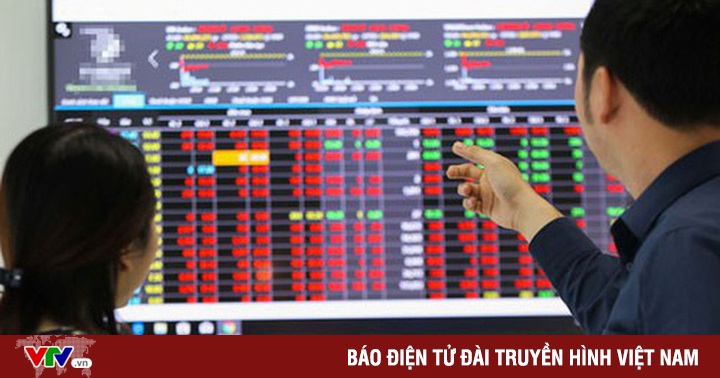China’s real estate market has not “fished at the bottom”
China’s real estate market has not “fished at the bottom”. (Illustrated image – Photo: Getty Images)
House sales in China has declined for many months due to many potential customers worried that developers will not be able to complete their committed projects, as well as concerns about the country’s economic situation.
Of the 31 Chinese developers named with annual sales of at least 100 billion yuan ($15 billion) in 2020, 26 reported a revenue drop of at least 50% in April. 2022 compared to the number of contracts signed in the previous year. Of the remaining five real estate developers, none reported a revenue drop of less than 28%. In the first quarter of 2022, 11 real estate developers recorded a revenue drop of more than 50%.
According to Moody’s Investors Service, the real estate sector and related supply chains account for 28% of China’s Gross Domestic Product (GDP). Therefore, this industry is considered an important area to contribute to China’s economic growth target of 5.5% in 2022.
Given that situation, the Chinese authorities seem to be starting to revive the real estate market before continuing to limit borrowing risks. In recent days, bond sales by some private developers have been approved, the central bank’s benchmark lending rate has been cut, and Premier Li Keqiang and other senior officials called for construction assistance to address real housing needs and support small businesses.
Analysts have paid particular attention to the move of the People’s Bank of China (PBoC, the central bank) on May 20, according to which the bank lowered the prime interest rate on a five-year loan from 4.6% to 4.45% while leaving the rate unchanged on the one-year loan.
Huang Wenjing, an analyst at Chinese investment bank CICC, said the rate cut at this point has sent a clear signal of stabilizing the property market. Citigroup analyst Yu Xiangrong shares the same view.
Chinese property developers also welcome any help they can get. According to data from China’s National Bureau of Statistics, developers earned 23.6% less cash for construction use during January-April 2022, at $4,850 billion. RMB compared to a year earlier. In the first quarter of 2022, this decrease was 19.6%.
Between January and April 2022, proceeds from the presale of apartments and other prepayments fell by 37%, while income from retail mortgage payments and mortgage payments fell by 37%. Domestic loans all decreased by about 25%.
In April 2022, Sunac China Holdings, China’s fourth-largest real estate developer in terms of sales, recorded a 75% drop in contract sales, double the rate of decline in the first quarter of 2020. 2022.
Two weeks ago, the Tianjin-based company admitted that it had defaulted on a $750 million bond. Chairman Sun Hongbin had to ask creditors for an extension of time, saying that the recent COVID outbreaks had exacerbated the company’s problems accessing financial resources.
Real estate company Yuzhou Group Holdings also recorded a large decrease in revenue like Sunac. The company hired US restructuring advisor Alvarez & Marsal to “ensure transparency in dealing with creditors”. Last month, the developer nearly defaulted on a loan after receiving refinancing assistance from the local government. Yuzhou also raised 583 million yuan from the sale of its asset management unit.
Country Garden Holdings, China’s largest property developer by sales, saw revenue fall 57% in April 2022, more than twice the decline in the first quarter of 2022.
Previously, according to an estimate by 13 economists and analysts in a recent Reuters (UK) news survey, the average house price in China will decrease by 1.3% in the first half of this year. year-on-year, deeper than the 1% drop shown in the previous survey. For the whole year, house prices may “flatten”, instead of increasing 2% as forecast in the previous survey.
On the demand front, property sales are forecast to drop 25% in the first half of this year, well above the 14% drop forecast in the February survey. The forecast reduction for the full year 2022 is 10%. Investment by real estate companies is forecast to fall 5% in the first half of the year and 2.5% for the whole year. The respective declines in the previous survey were 2% and 1.5% respectively.
The bleak outlook for property prices, sales and investment in this sector is largely due to frequent outbreaks of COVID-19.
Wang Xiaoqiang, an expert at real estate data provider Zhuge House Hunter, said the COVID-19 pandemic has had a strong impact on the Shanghai property market, as many developers and real estate agents. had to shut down in-person operations and many residents were quarantined, causing housing sales to plummet.
Analysts say that Chinese authorities need to issue more policies aimed at the supply side to restore confidence in the market. Liu Yuan, head of research at China’s largest real estate brokerage Centaline, said the only measures to ease restrictions on funding for real estate companies across the country are: and redevelopment of new rundown housing can stabilize the real estate market in this country.
* Invite readers to watch programs broadcast by Vietnam Television on TV Online and VTVGo!
at Blogtuan.info – Source: vtv.vn – Read the original article here



